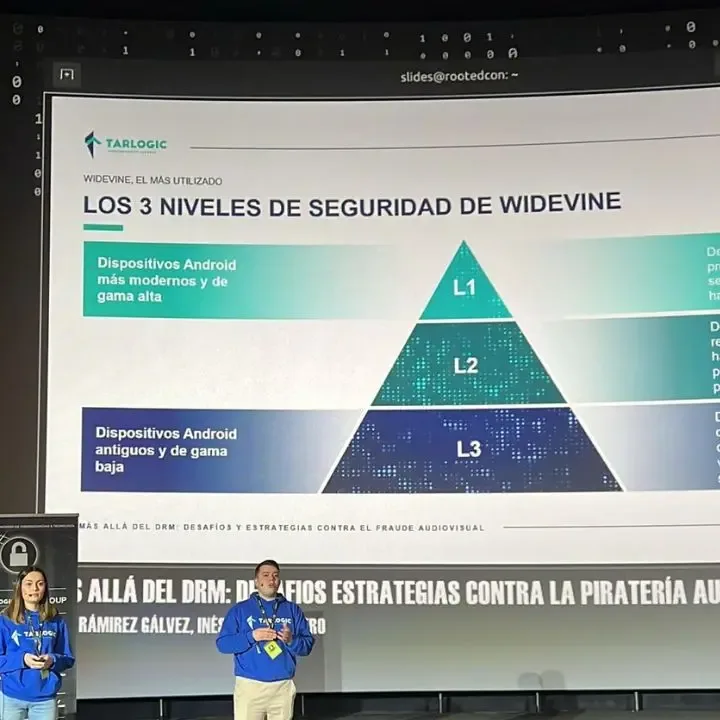
LaLiga's Fight Against Piracy: A Financial Crisis and Technological Response
In a world where streaming services dominate, LaLiga finds itself at a critical crossroads. With an estimated loss of between €600 million and €700 million annually due to piracy, the Spanish football league is grappling with a financial crisis that threatens not only its clubs but also the broader ecosystem of sports in Spain. This staggering figure represents a 25% increase over the average losses experienced across the European Union and reflects a troubling 36.5% rise in piracy incidents from 2021 to 2023. As the landscape of digital content consumption evolves, LaLiga is determined to reclaim its revenue through advanced technology and robust legal measures.

The Scope of the Problem
Recent surveys indicate that 59% of Spaniards admit to using piracy to access content at least once a month. This widespread behavior has profound implications for the financial health of Spanish football, making it imperative for LaLiga to act decisively. The league's officials stress that piracy not only undermines their broadcasting rights but also hampers the development of sports at all levels in Spain.
According to LaLiga, revenue from broadcasting rights constitutes a significant percentage of the total revenue for its clubs, and the losses from piracy could account for nearly half of these revenues in a given season. "The digital landscape has revolutionized the way fans consume content, but it has also made it easier for illegal streams to thrive," said a LaLiga spokesperson.
Technological Innovations in the Fight Against Piracy
To counteract the pervasive issue of piracy, LaLiga is deploying a multi-faceted strategy that utilizes cutting-edge technology. This includes automated monitoring tools capable of real-time detection of illegal streaming activities. These tools allow LaLiga to dynamically block IP addresses of offenders and remove illegal content from social media platforms and streaming services like Cloudflare, Google Cloud, and various IPTV systems.
LaLiga has dedicated approximately €200 million during the 2020-2024 Olympic cycle to promote elite sports and grassroots football, indicating the league's commitment to not only fighting piracy but also fostering a sustainable future for Spanish sports.
Legal Measures and Institutional Cooperation
In addition to technological innovations, LaLiga is taking legal action against those who facilitate piracy, including website operators and individuals involved in the distribution of illegal content. The league's legal team has been proactive, launching multiple lawsuits against offenders and seeking cooperation from various institutions to bolster their efforts.
LaLiga emphasizes that protecting its broadcasting rights is crucial for the sustainability of its 42 clubs and the larger sporting community. The league's comprehensive strategy involves collaboration with law enforcement and regulatory bodies to create an environment where piracy cannot thrive.
Public Awareness Campaigns
Recognizing that technology and legal actions alone are not enough, LaLiga is also investing in public awareness campaigns aimed at educating fans about the implications of piracy. These campaigns highlight the importance of supporting legitimate channels and underscore how piracy negatively affects the football ecosystem, including clubs, players, and the overall development of the sport.
The Broader Impact on Spanish Football
LaLiga's commitment to combating piracy extends beyond mere financial implications. The league views itself as a steward of football culture in Spain and acknowledges that its challenges are reflective of a broader global fight against piracy in sports. The ongoing digital transformation of content consumption necessitates innovative approaches to ensure the sustainability of sports leagues.
"The issue of piracy not only affects our bottom line; it affects the entire sports landscape in Spain," stated LaLiga's director of anti-piracy. "We are determined to ensure that football remains a thriving and financially viable industry."
Conclusion
As LaLiga navigates the complexities of piracy, its multi-pronged approach—integrating technology, legal measures, and public awareness—serves as a blueprint for other leagues grappling with similar issues. The fight against piracy is not just a battle for lost revenue; it is a fight for the future of football in Spain.
By safeguarding its content, LaLiga aims not only to protect its clubs but also to ensure the continued growth and development of sports in the nation. With a proactive stance, LaLiga is setting a precedent in the global sports community, demonstrating that the fight against piracy is essential for preserving the integrity and vibrancy of the beautiful game.